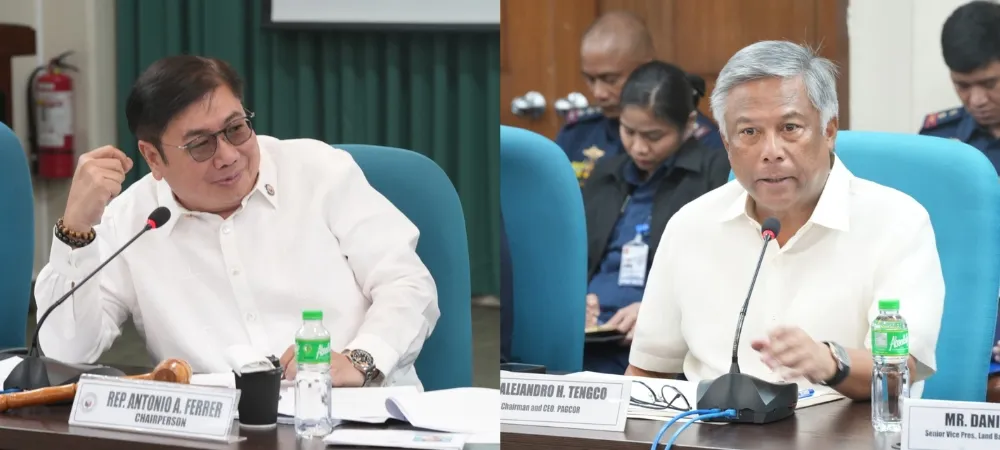The House Committee on Games and Amusement, under the leadership of Cavite 6th District Representative Antonio Ferrer, officially approved House Bill (HB) 5082 and House Resolution (HR) 1197. These measures directly seek to prohibit Philippine Offshore Gaming Operators (POGOs) and classify their operations as illegal.
Cagayan de Oro 2nd District Representative Rufus Rodriguez, who authored HR 1197, clearly explained his reasoning. He anchored his proposal on Article II, Section 5 of the Constitution. This provision explicitly states that maintaining peace and order, protecting life, liberty, and property, and promoting the general welfare remain essential to the enjoyment of democracy.
To strengthen his case, Rodriguez cited data from the Philippine National Police (PNP). The PNP documented 4,039 individuals as victims of POGO-related crimes in just the first half of 2023.
“These crimes include human trafficking, forcible abduction, homicide, illegal detention, kidnapping for ransom, theft, robbery, extortion, serious physical injuries, swindling, grave coercion, investment scams, cryptocurrency scams, and love scams,” Rodriguez emphasized. “Nearly every major offense under the Revised Penal Code is represented.”
Moreover, he revealed that more crimes surfaced after he filed HR 1197 in August 2023.
Furthermore, Rodriguez pointed out another concern. He stated that POGOs have fueled a disturbing rise in prostitution, turning the Philippines into a regional hub for trafficked women. “The Philippines has become the international destination for women not just from the country, but also from Vietnam, Myanmar, and other ASEAN nations,” he warned.
Gabriela party-list Representative Arlene Brosas strongly echoed Rodriguez’s sentiments. In addition, she emphasized how human trafficking and prostitution have spread alongside the growth of POGOs.
She cited a police raid in November 2023 on a POGO office in Parañaque. During that operation, authorities found a spa and massage area and successfully rescued 16 women.
Meanwhile, Parañaque 2nd District Representative Gus Tambunting pressed for answers regarding PAGCOR’s earnings from POGOs. He also asked how PAGCOR plans to recover lost revenue if the ban proceeds.
In response, PAGCOR Chairman Alejandro Tengco reported the government collected PHP 5.2 billion from POGOs in 2023. However, he acknowledged that shutting down these operations would affect about 25,000 Filipino workers. He added that closures would also impact 625,000 square meters of leased commercial space, not including residential properties. The closures would further affect hundreds of restaurants in Metro Manila and other key cities.
Nevertheless, Tengco clarified an important point. POGOs contribute only 5 to 6 percent of PAGCOR’s total revenue. The majority, he stressed, comes from licensed casinos.
“We need to double down on maximizing income from our other revenue-generating licensees,” Tengco said. “Licensed casinos and regulated online gaming platforms can generate PHP 6.5 to 7 billion in income if we push harder.”
Agusan del Sur 2nd District Representative Eddiebong Plaza argued that poor regulation, not POGOs themselves, created the current issues. “The government has failed to give PAGCOR enough authority to effectively regulate POGO operations,” he stated.
Tengco, however, assured the committee that PAGCOR already enforced several corrective measures. According to him, these reforms helped reduce crime and address most of the issues Rodriguez raised.
At the same time, public scrutiny of POGO operations has intensified. News outlets continue to report a steady stream of criminal activity linked to these offshore platforms.
In contrast, inshore online gaming—known as PIGO (Philippine Inland Gaming Operator)—offers a much safer alternative. Because PIGO serves only the local market, regulators can easily track all transactions and monitor operator behavior.
For this reason, PAGCOR continues to urge players to choose legal and licensed platforms. These sites ensure safety, process payments transparently, and comply with all tax obligations.
Illegal operators, on the other hand, avoid regulation, scam players, and erode trust in the gaming sector.
Ultimately, playing on PAGCOR-licensed sites remains the smartest and safest choice for Filipino bettors. It not only protects users, but also channels legitimate gaming revenues toward national development.












